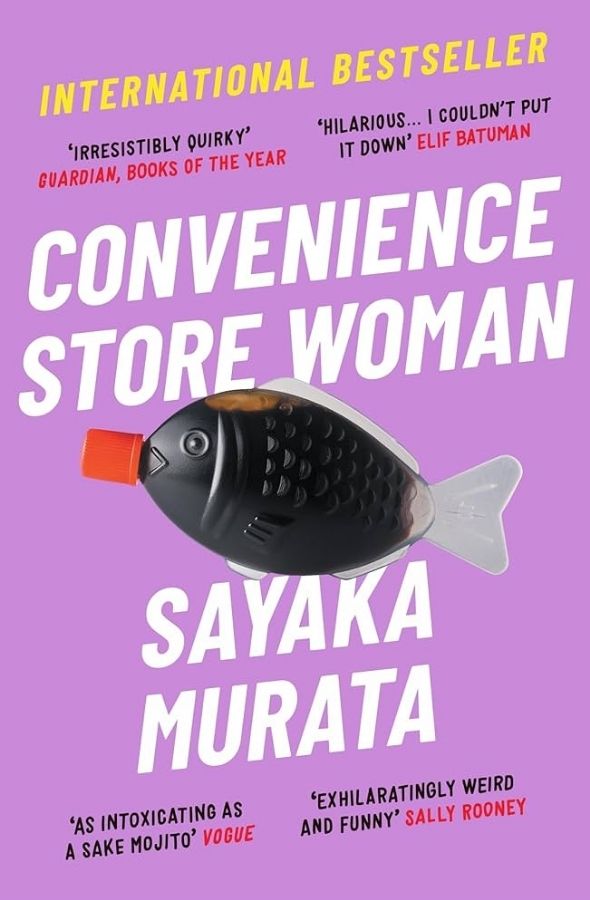You may notice my reoccurring fondness for Japanese fiction, and quirky novels like Convenience Store Woman are exactly why my fondness persists year upon year.
Despite being a funny, not-too-serious story about an oddball woman who has dedicated herself to working part-time at a convenience store since she was eighteen, Murata is a surprisingly talented author who is able to tackle a lot of topics throughout this novella’s short duration.
The story really is as simple as my following summary: Keiko, now thirty-six years old and having worked at the same store for literally half her life, shows no signs of changing. She is single, lives alone, has no pets or real responsibilities, and little in the way of friends or family connections. But, through the meddling of others, as well as a sociological pressure to ‘get a real job’ and settle down with a man, Keiko gradually loses the serenity she feels from her simple job.
I don’t want to give much away given that the book only spans 163 pages, but there is a lot of amusing critique bundled within. Some of these are obvious, some are more subtle, and exist to agitate or tickle your personal views. Personally, I think its sardonic towards Japanese tradition and modern societal pressure.
Keiko is very simple, but also very psychopathic in a way, making her intriguing and endearing in a foolish way. From the get-go, she recounts her childhood and conveys an understanding that she is fully aware that she is not normal. Her personality worries the likes of her sister and parents, but Keiko remains unconcerned and blames no one for making her how she is. She is straightforward and uncomplicated to the core of her being, making for a fun narration style.
Through her dislike of other’s opinions regarding herself, us readers can relate to the sense of constantly being lectured, bothered, and pressured by those and the society around us. Convenience Store Woman is not afraid to spell out that a simple and content life is not a bad life. As long as we are fulfilled, then maybe things are alright as they are.
However, Keiko—as well as a male side character, Shiraha—serve as examples of what is wrong with modern society, opening up critique into the opposite view. Keiko is unquestioning, and fully acknowledges that she lives only to work, often thinking about it even on her time off. Everything she eats comes from the store she works at, which conveys a very capitalist sentiment.
Shiraha, on the other hand, exists as a mockery of the fragile male ego, but also serves to promote some feminist values. He is a NEET, and a creep, who ends up under Keiko’s care through a series of pretty idiotic choices and outcomes. Shiraha possesses a victim complex, and even if there is sometimes a tinge of logic behind what the character says, it is clearly designed to show the hubris and entitlement, as well as how out of touch self-absorbed people can be. The same can be said about the other characters, who are all quite gossipy and wrapped up in their own worlds.
Convenience Store Woman, despite sounding rather silly and definitely leaning into absurdism, is executed very well. It is written in an uncomplicated manner, but packed with enough constantly moving scenes and short chapters to compel you to read on. I essentially finished it in one sitting, within four hours of cracking it open.
If you like the quirkiness of Japanese fiction, whilst also having an appetite for a bit of social critique and mockery of almost every concept we hold onto as self-centred beings, then Murata’s novel is a pleasant combination of all of these oddities. A great debut work that weaves hints of seriousness into a laughable premise.

Leave a Reply